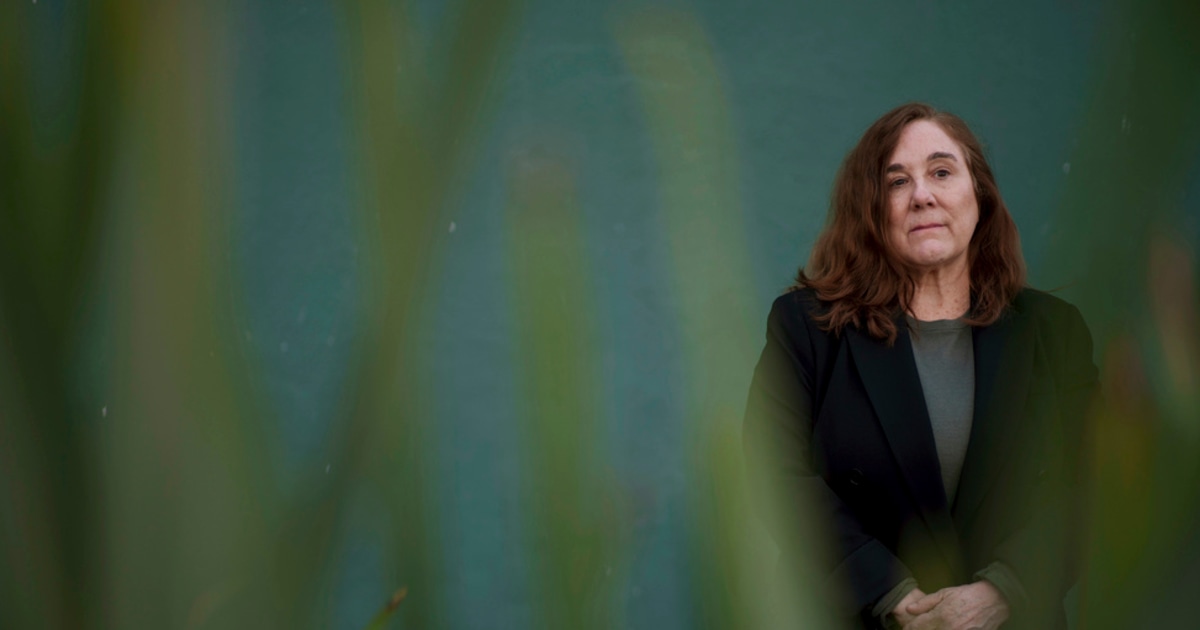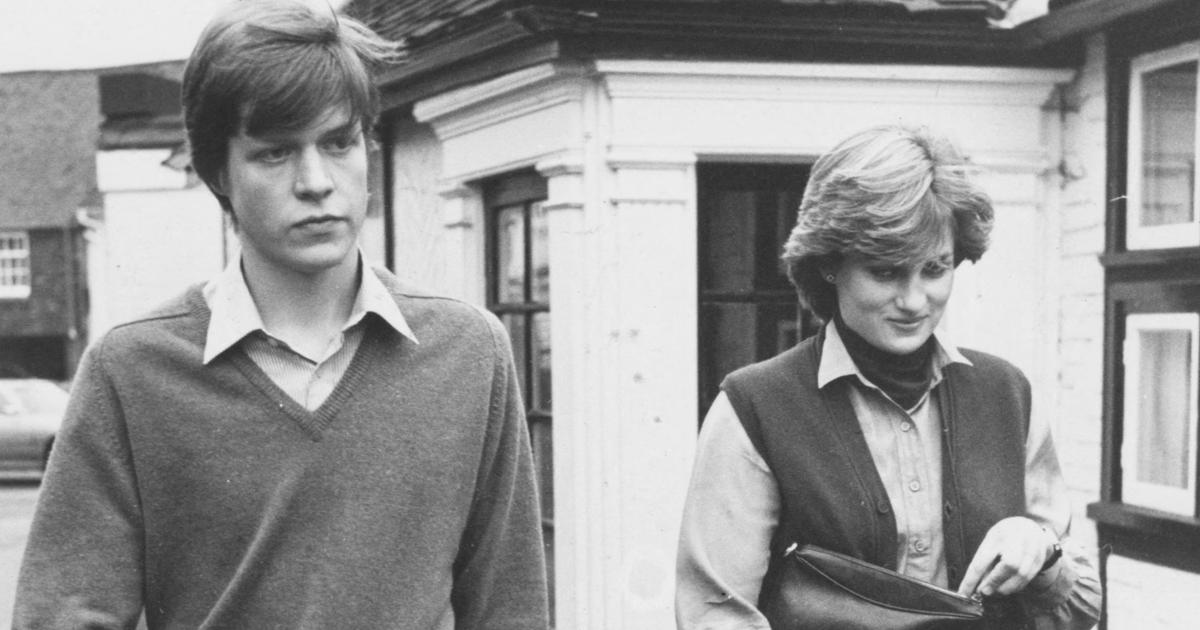Note to readers: EL PAÍS offers openly all the content of the Future Planet section for its daily and global contribution to the 2030 Agenda. If you want to support our journalism,
subscribe here.
With the same naturalness with which she tells that the multiple marks on her skin are due to how attractive her blood is to mosquitoes - "the nurse says I must be very sweet," she explains - Marion Gbassay, medium height, Curly hair and braided hair, and a lively and sincere gesture, narrates that she was married, sold and sexually abused on several occasions before she was 12 years old.
“The worst of all was at the beginning, when I was eight years old.
I was very small… Now I am very happy, but then… I didn't have to have suffered so much being so small ”, she affirms.
More information
Back to school and being a girl, despite the wedding
The girls forced to prepare their trousseau
Child marriage as a barrier to development
Most of the problems faced by children in Sierra Leone can be summed up in Marion's life.
Located on the west side of Africa, this nation of some eight million people suffers from scarcity as an endemic disease: almost 54% of its inhabitants live below the poverty line.
She came to the world in a rural area, a small town where opportunities practically end at birth.
“My mother had a head disease.
It wasn't right, so he gave me a woman named Mamie-Kaday when I was six years old, "he recalls.
the girl, who is 15 years old today.
Then they took her to Bo, a city in the south, the second largest in the country after Freetown, the capital.
There, with her new family, Marion never went to school. He spent the mornings at the market selling fruit and other merchandise and the afternoons taking care of housework. Thus the months went by until one day Mamie-Kaday's eldest son, a man in his 40s who had lived in Angola for some time, arrived at that house. It was the beginning of the nightmare for Marion. “They told me they were going to marry him. I was very little; I was eight years old, ”he laments. Nobody cared that she refused. Nor that her neighbors made fun of her as she passed by shouting “married girl”. Not even her tears when that man forced her to have sex with him. At the age of eight, the girl had become a wife.
And it's not the only case. Rather, this reality is all too common in Sierra Leone. UNICEF places this nation in 18th position on the list of countries with the highest prevalence of child marriage. The UN agency also assures that 39% of girls marry before the age of 18 and 13% do so before their 15th birthday. All backed by centuries-old traditions and the laxity of contradictory laws. On the one hand, the Child Right Act 2007, which expressly prohibits sex with minors under 18 years of age without exceptions, even if it is consensual. On the other, the Registration of Customary Marriage and Divorce Act 2009, which allows marriage before that age with the collusion of families. “Little by little, people denounce these types of crimes more and they are also becoming afraid of committing them. Although slowly,the situation has improved in recent years ”, assesses Curtis Johnson, a Sierra Leonean legal advisor with extensive experience in children's rights.
Sold for 400 euros
Marion Gbassay's marriage fell apart quickly for reasons just as lurid as those that consummated it.
Her husband began to go through financial problems and found the solution at home.
This is how she relates it: “Shortly after living with that man, he told me that he needed money, so he sold me to a woman named Isata.
Me and Tiranke, a little nephew that he had and who became my friend.
He was a little older than me, but he treated me well.
He protected me and took care of me.
Some time later I found out that we had cost five million lions (just over 400 euros) each ”.
Isata took the two minors he had just acquired from his native country and took them to neighboring Guinea Conakry, where they would spend the following years.
In sub-Saharan Africa there are around 48 million working children, with almost one in three children under 15 years of age being economically active
In her new home, Marion also did not find a decent life, the one that a girl who had not yet turned 10 should lead. She neither went to school nor spent the afternoons with toys and friends. Instead, she was assigned the hardest tasks: cooking, washing the clothes of all the inhabitants of the house, scrubbing the floor, transporting the fruit to the market ... In short, it became part of that painful statistic that indicates that in sub-Saharan Africa there are around 48 million working children, with almost one in three children under 15 years of age economically active. She also experienced some of the worst forms of exploitation in this destination: human trafficking and trafficking for slavery, forced recruitment and exposure to activities potentially harmful to her health.
Marion doesn't remember anything good about the time she spent in Guinea. The woman who had bought it even tried to kill her. That was the trigger to escape from there with Tiranke, go to the police and finally return to Freetown. There was waiting for her that husband who was almost 40 years old, so she decided to look for her mother and try to return with her. But because he had very little capital and fewer people to turn to, he decided to accept help from the only person who offered it. “Alpha, the little brother of the man I was married to, told me that he was going to pay for transportation to meet my biological parents. But instead he made me have sex with him twice before he gave me the money. And when I was finally able to flee, it was impossible to find them, ”says Marion.
His next step was marked again.
Alone, she would have to go back to that man she was married to, the same man who sexually abused her, the person who sold her for 400 euros.
But, at the age of 12, at the beginning of 2018, something had changed in that girl.
Tired of the abuses, which were increasing every day, and accompanied by beatings, the young woman fled that house and reported her situation to the police, who referred her to a shelter that the Salesian NGO Don Bosco Fambul assigned in Freetown to girls who have been through similar situations.
Marked from a young age
“Marion is a girl with great resilience, a wonderful story of overcoming. When she arrived she was an introvert, always separated from the group… She had lost control over her life, which is the biggest problem with trafficking and early marriage. You are a woman, you are a girl, in a place where man is everything. They robbed her of her innocence, her physical integrity ... The man who trafficked her and sold her stole her dignity. They took all control out of him. I believe that this is the hardest consequence of all; you become an object and a commodity. Nothing else, ”says Jorge Crisafulli, director of Don Bosco Fambul, a Salesian with decades of experience in different countries of Africa on issues related to children's rights.
It's a crime.
It is against the right of girls to finish their education, to grow up, to mature physically and mentally and to have the free option to choose their partner
Jorge Crisafulli, director of Don Bosco Fambul
Crisafulli affirms that child marriage in Sierra Leone, especially in rural areas inhabited by certain ethnic groups where some traditions are more deeply rooted, is a reality. And that often happens with the absolute complacency of families, often mired in extreme poverty. He describes it like this: “Sometimes they fix it since the girls are babies. One person contributes to the maintenance of the young; she buys clothes, soap, pays for primary school… The girl grows up and, when she turns 13 or 14, the man says that it already belongs to him, as if he had bought it beforehand. The little girl is trapped ”. In addition to giving refuge, Don Bosco Fambul takes legal action to change the laws that do not fight clearly and concisely against this practice. "It's a crime. It is against the right of girls to finish their education,to grow, to mature physically and mentally and to have the free option to choose his partner ”, contextualizes the Salesian.
When I grow up, I want to carry out a profession with which I can help girls who have been through situations like mine
Marion went to school for the first time in her life at the age of 12, having just arrived at Don Bosco's refuge. All in all, it will be enough to exceed the 2'7 years of schooling that women average in their country. She wants to continue studying. He claims that he loves it. And he proudly displays some of the diplomas that he has been awarded in summer camps or in the activities in which he has participated over the years. “When I grow up, I want to do a job where I can help girls who have been through situations like mine,” she says simply. “It would be beautiful if, when she reaches 18, she could go to the cabbages and become an example herself. May she tell her story and warn other girls. It is a story that can have an impact in many ways, ”says Crisafulli. For nowMarion has managed to get excited at school and talk about her life as naturally as how sweet her blood is for mosquitoes. It does not seem small.
FUTURE PLANET can follow on
,
and
, and subscribe
here
to our 'newsletter'
.














